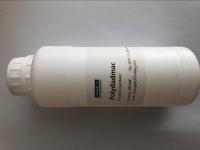The main function of PolyDADMAC (PolyDiallyldimethylammonium Chloride) in water treatment?
PolyDADMAC (PolyDiallyldimethylammonium Chloride) is a cationic organic polymer that has gained significant attention and application in
various industries and fields due to its unique properties and versatile functionality. With its wide range of applications, PolyDADMAC has
become an important chemical in water treatment, personal care products, pulp and paper industry, textiles, and many other areas. In this
response, we will explore the function and applications of PolyDADMAC in detail.
PolyDADMAC is a water-soluble polymer that is derived from the monomer diallyldimethylammonium chloride. It is typically produced through the polymerization of
this monomer and is available in various forms, including liquid or powder. The polymer consists of a linear chain with numerous cationic
charge sites along its structure, making it highly effective in various applications where cationic properties are desired.
One of the primary functions of PolyDADMAC is as a coagulant and flocculant in water treatment processes. It is widely used in municipal
and industrial water treatment plants for the clarification and purification of water. When added to water, PolyDADMAC destabilizes the
suspended particles, causing them to clump together and form larger aggregates. These aggregates, called flocs, can then be easily
separated from the water through processes such as sedimentation or filtration. PolyDADMAC's cationic nature enables it to effectively
neutralize the negative charges on suspended particles, facilitating the formation of flocs. This coagulation and flocculation process helps
remove impurities, suspended solids, and colloidal matter from water, improving its clarity and reducing turbidity.
In addition to water treatment, PolyDADMAC finds extensive use in the pulp and paper industry. It is employed as a retention and drainage
aid, which enhances the efficiency of papermaking processes. By improving the retention of fine particles, fillers, and fibers in the paper pulp,
PolyDADMAC contributes to increased paper strength, reduced paper losses, and improved paper quality. Furthermore, it aids in drainage
by promoting the removal of water from the pulp, leading to faster drying times and higher production rates.
PolyDADMAC is also utilized in the textile industry for various purposes. It can be employed as a dye-fixing agent, enhancing the colorfastness of dyed fabrics and preventing the bleeding of dyes during washing or perspiration. By forming
complexes with dyes, PolyDADMAC helps to anchor the colorants to the fabric, resulting in improved color retention. Additionally, PolyDADMAC
can act as a softening agent for textiles, providing a smoother and softer feel to the fabric surface. It accomplishes this by reducing the friction
between the fibers and by preventing the formation of static charges, resulting in enhanced comfort and improved tactile properties.
Another notable application of PolyDADMAC is in the production of personal care products. Due to its cationic properties, it can function as a
conditioning agent in hair care formulations such as shampoos, conditioners, and hair styling products. PolyDADMAC helps to improve hair
manageability, reduce static electricity, and enhance the overall appearance and feel of the hair. It forms a thin film on the hair surface, which
can provide conditioning benefits such as detangling, smoothing, and frizz control. Additionally, PolyDADMAC can contribute to the substantivity
of cosmetic ingredients, allowing them to adhere better to the skin or hair, thereby improving their efficacy.
In wastewater treatment, PolyDADMAC plays a vital role in the removal of pollutants and contaminants. Its cationic charge allows it to effectively
bind to negatively charged organic and inorganic substances, such as oils, greases, suspended solids, and heavy metals.

